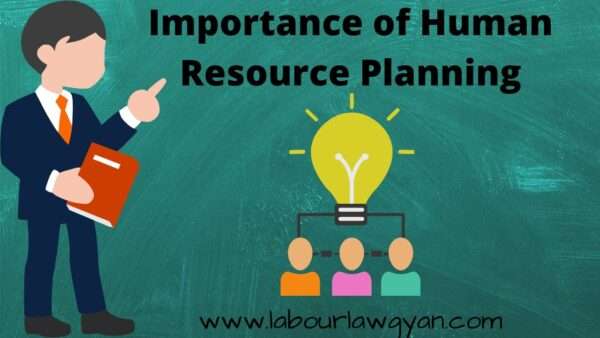Human Resource Planning is a systematic and continuous effort to put right people in the right job at the right time.
Concept and Definition of Human Resource Planning
The long run success of any organization, ultimately depends on having appropriate talent, skill and desire are to execute the task needed to realize the goals of the organization.
E. W Vetter viewed Human Resource Panning as” a process by which an organization should move from its current manpower position to its desire manpower position. Through planning management strives to have the right number and right kind of people at the right places at the right time, doing things which result in both the organization and the individual receiving maximum long run benefit.”
Human Resource Planning always aims to maintain balance between manpower demand and supply to support the organization to to achieve its predetermined goals.
Reason why Human Resource Planning is important
HRP anticipates not only the required kind and number of employees but also determines the action plan for all the functions of personnel management. Following are the reason why HRP is important in business:
- To recruit and retain the human resource of required quantity and quality.
- To foresee the employee turnover and make the arrangement for minimizing turnover and filling up the consequence vacancies.
To meet the needs of programme of expansion, diversification etc.To foresee the impact of technology on work, existing employees and future human resource requirement.To improve standard, skills, knowledge, ability and discipline etc.To assess the surplus or shortage of human resources and take necessary action.To maintain congenial industrial relations by maintaining optimum level and structure of human resources.To minimize imbalances caused due to non-availability of suitable manpower.To estimate the cost of human resource.
You may also read Evaluation and Growth of Personnel Management in India
Benefits of Human Resource Planning
HRP benefited the organization in various way. The major payoffs of HRP may be catalogue in the following way.
- It provide scope for advancement and development of employees through training, development etc.
- It helps to satisfy the individual needs of employees for promotions, transfers, salary hike and better benefit etc.
- It helps in anticipating the cost of salary, benefits and all the cost of human resource facilitating the formulation of budgets in an organization.
- It tries to foresee the needs of redundancy and plan to check it or to provide for alternative employment in consultation with trade unions, other organizations and government through remodeling organizational, industrial and economic plan.
- It helps in foresee the changes in values, aptitude and attitude of human resources and to change the techniques of management etc.
- It helps for planning for physical facilities, working conditions, the volume of fringe benefits like canteen, schools, hospitals, conveyance, child care centers, quarter etc.
- It causes the development of various sources of human resources to meet the organizational needs.
- It helps to take necessary steps to improve human resource contribution in the form of increased productivity. sales and turnover.
- It facilitates the control of all the functions, operations, contribution and cost of human resources.
Challenges of Human Resource Planning
Implementation of HRP is beneficial to the organization, employee and trade unions, but it also face some challenges in the process. Important challenges are pointed out below:
- Resistance by Employer and Employees: Many employer resist HRP as it increase the cost of manpower as employee or trade unions demand more facilities. Along with that employer also thinks that due to hug number of unemployment in country like India manpower is always available in need but that is not true for all categories of human resource. Again employee thinks that employer will increase the workload of the employees to maximization of the productivity.
- Uncertainties: Uncertainties are quit prominent in human resource practices in India due to absenteeism, seasonal employment, labour turnover etc. Frequent changes in industrial scene particularly in the technological, political and socio cultural spheres besides the marketing condition also cause uncertainties in human resource management. And all these uncertainties make the HRP less reliable.
- Inadequate Information System: Information system regarding human resource has not been fully developed in organization doing its business in developing counties like India due to low status given to personnel departments and less importance attached to HRP. Further noticed that in many organization HRP is not supported by top management and top management influences the manpower deployment by their choice only. Lake of participation from other departments also makes it hard for HR professional in the organization to collect various vital inputs.
All the above challenges explained above restricted the proper implementation of HRP. However, organizations in developed countries already adopted HRP and benefited from the same.
If you have any query regarding this article please do comment below.

